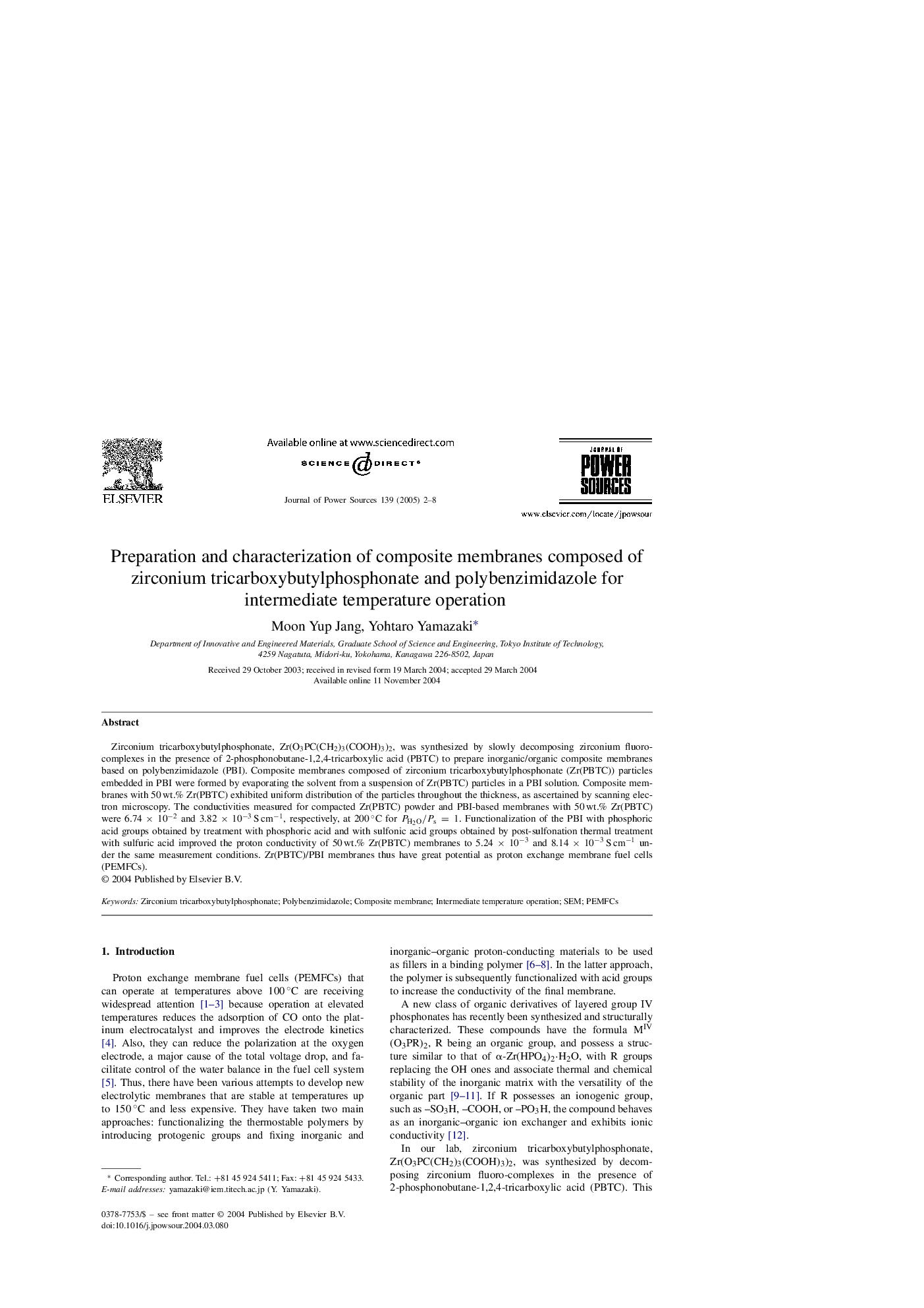| Article ID | Journal | Published Year | Pages | File Type |
|---|---|---|---|---|
| 9760491 | Journal of Power Sources | 2005 | 7 Pages |
Abstract
Zirconium tricarboxybutylphosphonate, Zr(O3PC(CH2)3(COOH)3)2, was synthesized by slowly decomposing zirconium fluoro-complexes in the presence of 2-phosphonobutane-1,2,4-tricarboxylic acid (PBTC) to prepare inorganic/organic composite membranes based on polybenzimidazole (PBI). Composite membranes composed of zirconium tricarboxybutylphosphonate (Zr(PBTC)) particles embedded in PBI were formed by evaporating the solvent from a suspension of Zr(PBTC) particles in a PBI solution. Composite membranes with 50 wt.% Zr(PBTC) exhibited uniform distribution of the particles throughout the thickness, as ascertained by scanning electron microscopy. The conductivities measured for compacted Zr(PBTC) powder and PBI-based membranes with 50 wt.% Zr(PBTC) were 6.74 à 10â2 and 3.82 à 10â3 S cmâ1, respectively, at 200 °C for PH2O/Ps=1. Functionalization of the PBI with phosphoric acid groups obtained by treatment with phosphoric acid and with sulfonic acid groups obtained by post-sulfonation thermal treatment with sulfuric acid improved the proton conductivity of 50 wt.% Zr(PBTC) membranes to 5.24 à 10â3 and 8.14 à 10â3 S cmâ1 under the same measurement conditions. Zr(PBTC)/PBI membranes thus have great potential as proton exchange membrane fuel cells (PEMFCs).
Related Topics
Physical Sciences and Engineering
Chemistry
Electrochemistry
Authors
Moon Yup Jang, Yohtaro Yamazaki,
